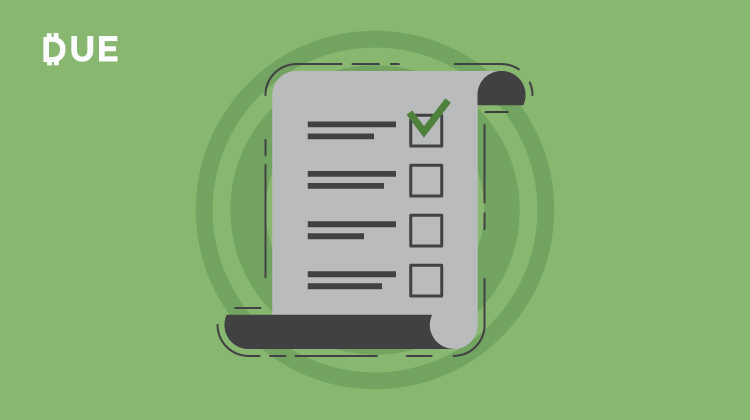As we are nearing the close of yet another year it’s time to start thinking about everyone’s favorite season…tax season! Okay, I take that back it’s probably your least favorite. That said, it needs to get done and it needs to be done right.
If you’re a freelancer or run a small business you’ll likely need to prepare your own books come tax time. To save yourself the headache follow this simple accounting checklist for the end of 2017.
Table of Contents
ToggleReconcile All Your Accounts
When reconciling your accounts make sure you report all transactions – cash, checks, bank transfers, credit cards, etc…You should also ask your bank for your month end statements at the end of every month throughout the year.
In addition you should use digital accounting products like an online payments provider or invoicing solution. This way all of your accounts can be organized and kept on a single platform. This makes it a breeze when referencing other financial documents.
Track All Expenses
The majority of small businesses use the cash-basis accounting method (mainly accounts for cash coming in and out of your bank). If so you need to keep track of both prepaid expenses and income. Prepaid items need to be kept separate from standard expenses and income since they will be listed on your balance sheet as an asset or liability.
If you have bills that are going to be paid later but want them as your current year’s expenses then you need to make sure you pay them before years end. If you’re using an accrual accounting method (account for what’s owed to you instead of actual cash payments) then you can record current expenses now and pay them later.
Track Depreciation
Non-cash expenses like accumulated depreciation are also something you should account for. Debts that are considered non-recoverable will need to be recorded as bad debts. In addition if you decide to add or dispose of assets this also needs to be clearly reported.
If you’re planning to purchase a new asset before the year’s end it’s better to do so rather than waiting until next year. If you purchase in the current tax year you’ll reduce your tax liability for 2017 and benefit from depreciation.
Track Employee Salaries
Expenses like employee salaries need to be paid before the year is over. You absolutely do not want to carry these expenses on into the new year. If you want to reduce your current year’s income a bit you can always delay some sales into the new year instead of Q4 of 2017.
Account for Outstanding Payments
Last but not least you’ll need to take outstanding payments into account. This really depends on your method of accounting. If you’re using the accrual method you’ll need to record outstanding payments as income for 2017.
If you are using a cash basis method then you do not need to record outstanding payments as income as you have not yet received them.
Final Thoughts
End of year tax preparation is nobodies favorite task. Whether you handle your own bookkeeping or delegate it to someone else it’s always best to have a basic checklist. As the 2017 comes to an end make sure you reference this checklist to prepare your books for Uncle Sam!















